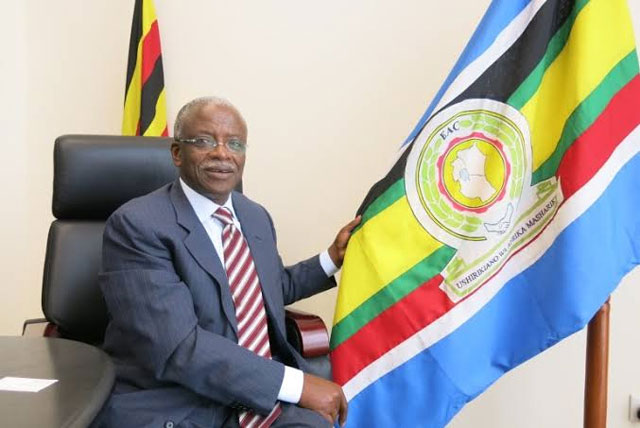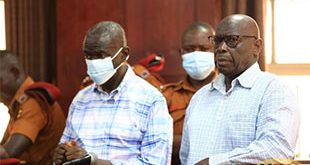
Kampala, Uganda | THE INDEPENDENT | Former Prime Minister Amama Mbabazi has said that torture is unacceptable and goes against the laws of Uganda.
In his first media address after several years, Mbabazi said that as a member of the National Resistance Movement party-NRM, one of the things they fought for was freedom of the people regardless of their opinions.
Mbabazi made no reference to any torture incidents, although news in the country has been about writer Kakwenza Rukirabashaija who has publicly accused security personnel of abducting and torturing him on orders of the First son and Commander of the Land Forces Muhoozi Kainerugaba who he reportedly insulted through his Twitter account.
Another recent incident involves the National Unity Platform -NUP coordinator for Kasese district Samuel Masereka who also says security personnel abducted and took him to an unknown destination. He was reportedly tortured daily for 20 days before he was released. Both Kakwenza and Masereka returned to the public with visible signs of torture.
Mbabazi, who lost in the 2016 Presidential elections was speaking at a press conference held at a residence in Kololo. He made it clear that torture isn’t a civilized way of doing anything.
Mbabazi says that torture was used extensively during Idi Amin’s time and that the behavior was attributed to their (Amin’s government) incapacity to do an effective Job as a government. He believes the government of the NRM and the NRM as a party don’t subscribe to torture.
He says he has heard government condemn the act and asked that they take strong and effective measures if it is happening. Mbabazi who spoke says some of the cases of torture reported in the media were before courts of law and he didn’t want to comment about them.
The government has often denied allegations of torture.
At the press conference, Amama Mbabazi had invited the media to brief them about the African Global Security Foundation launched on February 13 in Dakar, Senegal.
The African Global Security has been set up by the founding member states of Congo Brazzaville, Democratic Republic of Congo, Mauritania, Senegal, Togo, and Uganda.
He says the foundation will be giving security briefings to member states through their established organs to provide insights to help members make sense of the changes happening in the region and the world.
“This will hopefully contribute to the shaping of member states foreign and security policies in the increasing dynamic environment and help build a safer and more stable region and the world. The primary focus of the foundation will be on member states security and international affairs, and how to improve the safety of the member states” added Amama Mbabazi
Mbabazi who is now the Chairman of the foundation thinks his record as a Pan-African is the reason he was given the position to help in furthering peace on the continent through parties working together to prevent conflict by creating conditions that allow peace to hold and to flourish.
He says previously, President Museveni asked him to lend a hand in efforts by other African players to resolve conflict in South Sudan and other areas and he agreed because he believes that senseless war should stop.
He says conflict can be avoided and peace achieved only when systems and mechanisms are put in place to determine the existence of threats to peace.
He says the foundation which shall be funded by member states will provide analysis and insight on the medium and long-term security threats and provide ideas on the setting up of autonomous capacity that gives resilience against any external threat as well as protecting and consolidating the members’ integrity.
He says the foundation, still in its infancy, comes as one of the avenues for Africa to thrive in a world of stiff competition and provide homegrown solutions. He denied that the foundation has been found in response to the spell of coups that have been experienced in West Africa in recent times.
****
URN
 The Independent Uganda: You get the Truth we Pay the Price
The Independent Uganda: You get the Truth we Pay the Price


